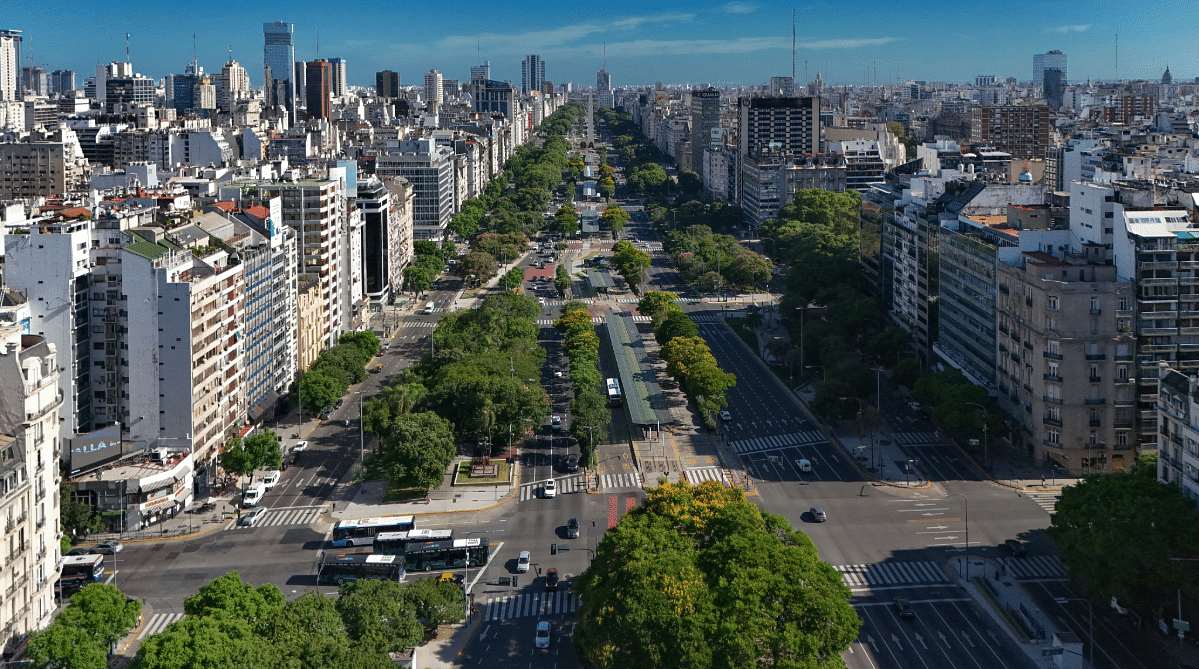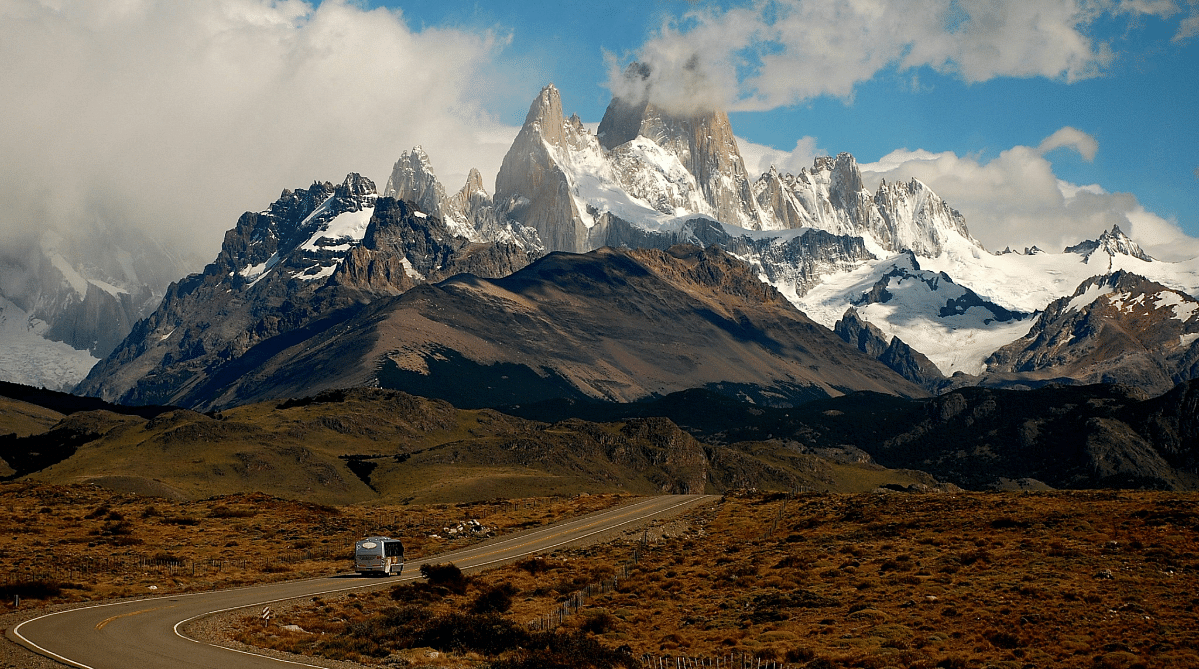
Argentina, a land of tango and mesmerizing landscapes, is a must-visit — and for good reason. From the vibrant streets of Buenos Aires to the breathtaking beauty of Patagonia, this South American gem never fails to captivate. But beyond its well-known attractions are lesser-known facts and wonders waiting to be uncovered. In this blog post, we'll explore 20 fun facts about Argentina that will spark your imagination and inspire you to embark on your own Argentine adventure.
1. The Birthplace of Tango
Tango isn't just a dance in Argentina — it's a way of life. Originating in the working-class neighborhoods of Buenos Aires in the late 19th century, tango has evolved into a global phenomenon, captivating hearts with its sultry moves and emotive music. Walking through the cobblestone streets of San Telmo, you can still feel the echoes of its beginnings, where passionate dancers gather in milongas to showcase their skills and keep the tradition alive.
2. Mate: The National Drink
Step into any park or plaza in Argentina, and you're bound to see locals sipping from a curious-looking vessel known as a mate gourd. Mate, a caffeine-rich infusion made from the leaves of the yerba mate plant, is more than just a beverage — it's a symbol of friendship and camaraderie. Sharing mate is a cherished social ritual, where friends come together to bond over conversations and pass the gourd around in a circle, making it an integral part of Argentine culture.
3. The Land of Gauchos
Argentina's vast plains, known as the pampas, are home to the legendary figures known as gauchos. These skilled horsemen, reminiscent of the American cowboy, played a pivotal role in the country's history, herding cattle across the expansive grasslands. Today, glimpses of gaucho culture can still be found in rural communities, where traditions such as rodeos and folk music celebrations thrive.
 Unsplash
Unsplash
4. The World's Widest Avenue: Avenida 9 de Julio
Buenos Aires boasts one of the most impressive thoroughfares in the world: Avenida 9 de Julio. Spanning 140 meters (459 feet), it holds the title of the widest avenue globally, lined with iconic landmarks such as the Obelisco and the Teatro Colón. Navigating this bustling boulevard is an experience in itself, offering a glimpse into the city's vibrant energy and grandeur.
5. Candombe
While tango may be Argentina's most famous dance, another musical tradition holds a special place in the country's cultural mosaic: candombe. Rooted in the African diaspora, candombe originated among Afro-Argentine communities in Buenos Aires and Montevideo, Uruguay. Characterized by its infectious rhythms and vibrant street parades, candombe showcases Argentina's multicultural heritage and celebrates the contributions of African culture to the nation's identity.
6. Football: A National Obsession
In Argentina, football isn't just a sport; it's a way of life. From the iconic Boca Juniors to the legendary Lionel Messi, the country has left a mark on the world of soccer. Every weekend, stadiums across the nation come alive with passionate fans chanting and cheering for their beloved teams, creating an electrifying atmosphere that must be experienced to be truly understood.
 Unsplash
Unsplash
7. Perito Moreno Glacier
Journey to the southern tip of Argentina, and you'll discover the mesmerizing beauty of the Perito Moreno Glacier. This towering ice mass, located in Los Glaciares National Park, is one of the few glaciers in the world that continues to advance rather than retreat. Witnessing massive chunks of ice calving into the turquoise waters of Lake Argentino is an awe-inspiring spectacle.
8. Malbec in Mendoza
Nestled at the foot of the Andes Mountains lies Mendoza, Argentina's premier wine region. Renowned for its Malbec varietal, Mendoza boasts picturesque vineyards and bodegas that invite visitors to indulge in world-class wine-tasting experiences.
9. Asado and Empanadas
Argentine cuisine is a celebration of flavor and tradition, with two dishes standing out as culinary icons: asado and empanadas. Asado, a barbecue-style feast featuring an assortment of grilled meats, is a quintessential Argentine experience enjoyed with friends and family. Meanwhile, empanadas, savory pastry pockets filled with meat, cheese, or vegetables, offer a delicious taste of local flavors.
 Unsplash
Unsplash
10. Patagonia: Land of Endless Adventures
Stretching across the southern reaches of Argentina, Patagonia beckons adventurers with its untamed wilderness and rugged beauty. From trekking in the shadow of the Fitz Roy massif to cruising among towering glaciers in Tierra del Fuego, Patagonia offers a playground for outdoor enthusiasts seeking unforgettable experiences in nature's embrace.
11. Astronomy in the Andes
The clear skies and high altitude of the Andes Mountains make Argentina an ideal destination for stargazing and astronomical research. Observatories such as the Complejo Astronómico El Leoncito and the European Southern Observatory's Paranal Observatory offer unparalleled views of the cosmos, providing insights into the mysteries of the universe.
12. Evita Perón: A Cultural Icon
The legacy of Eva Perón, affectionately known as Evita, looms large in Argentine history and culture. As the wife of President Juan Perón, Evita played a significant role in championing social causes and advocating for the rights of the working class. Her iconic status is immortalized in museums, films, and the hearts of many Argentines, making her a symbol of resilience and empowerment.
13. Cueva de las Manos: Ancient Rock Art
Deep within the remote reaches of Patagonia lies Cueva de las Manos, a UNESCO World Heritage Site renowned for its ancient rock art. Dating back over 9,000 years, these intricate handprints and vibrant murals offer a glimpse into the lives and beliefs of the indigenous peoples who once inhabited the region.
14. Giant Dinosaur Discoveries
Argentina is a treasure trove of dinosaur fossils, with some of the largest and most complete specimens ever found. Patagonia, in particular, has yielded numerous discoveries, including the massive Argentinosaurus, one of the largest land animals to have ever lived. Museums such as the Museo Paleontológico Egidio Feruglio in Trelew showcase these prehistoric giants, allowing visitors to marvel at their sheer size and significance.
15. Güemes: Argentina's Heroic Horse
In the annals of Argentine history, one name stands out as a symbol of bravery and resilience: Martín Miguel de Güemes. This charismatic military leader played a pivotal role in the country's struggle for independence, leading guerilla forces against Spanish royalists in the rugged terrain of northern Argentina. Today, Güemes is celebrated as a national hero, with monuments and memorials honoring his legacy across the country.
 Wikimedia Commons
Wikimedia Commons
16. Café Culture: Buenos Aires' Historic Cafés
Buenos Aires is not only a city of bustling streets but also a haven for café aficionados. The city's historic cafés, such as Café Tortoni and Café La Biela, have been serving patrons for over a century, offering a glimpse into Argentina's cultural heritage. These timeless establishments are more than just places to grab a cup of coffee; they're veritable institutions where poets, intellectuals, and artists have gathered to share ideas and inspiration.
17. La Noche de los Bastones Largos
Every year on May 29th, students at Argentina's prestigious universities partake in a unique tradition known as La Noche de los Bastones Largos, or the Night of the Long Batons. Dating back to the 1960s, this whimsical event sees students wielding oversized batons and engaging in mock battles with faculty members, symbolizing their resistance against academic authoritarianism. It's a lighthearted yet spirited celebration of student activism and camaraderie.
18. Gnomes of Bariloche
Nestled amidst the stunning landscapes of the Andes Mountains, the town of Bariloche is not only famous for its chocolate but also for its enchanting population of gnomes. Scattered throughout the city's parks and gardens, these whimsical statues add a touch of magic to the surroundings, delighting visitors of all ages. Legend has it that these gnomes are guardians of the forest, watching over Bariloche with their mischievous charm.
19. Iguazú Falls: Nature's Masterpiece
Tucked away in the northeastern corner of Argentina lies one of the world's most awe-inspiring natural wonders: Iguazú Falls. Spanning the border with Brazil, these majestic waterfalls cascade over a series of 275 individual drops, creating a symphony of roaring water and misty rainbows. Exploring the surrounding national park, you'll encounter diverse wildlife and lush rainforest, adding to the enchantment of this UNESCO World Heritage Site.
20. Skiing in the Southern Hemisphere
While most people associate skiing with snow-capped mountains and winter landscapes, Argentina offers a unique twist on this popular sport. Thanks to its location in the Southern Hemisphere, the country boasts world-class ski resorts that operate during the northern hemisphere's summer months. From the slopes of Cerro Catedral in Bariloche to the powdery peaks of Las Leñas in Mendoza, Argentina's ski season offers an exhilarating escape for snow enthusiasts year-round.
Are you planning a trip to Argentina? Stay connected with an eSIM from Airalo.


